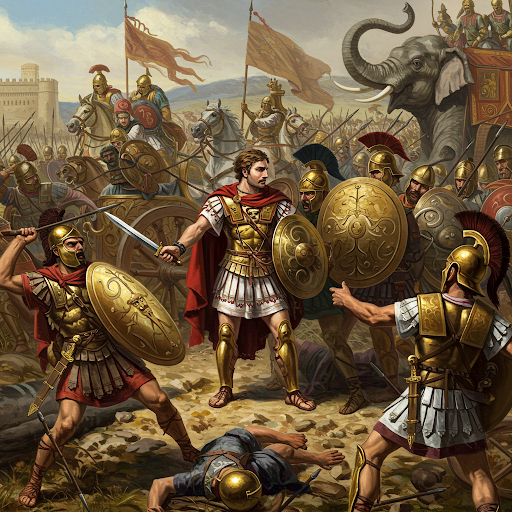The destruction of ancient Nymphaeum (monumental fountain) of ancient Apollonia (Ἀπολλωνία) near Fieri (Φίερι) has caused outrage in the Greek community of Northern Epirus, in southern Albania.
Vandals have caused irreparable damage to one of the most important cities in the history of the region, which is a World Heritage Site included in the UNESCO list, Himara.gr reported.
The director of the archaeological park commented about the incident, while the whole issue was reported to the prosecutor’s office.
Referring to the vandalism, the director said the damage was irreparable and involved breaking of columns to the point that the monument was completely destroyed.
As for when the incident occurred, he noted that everything was done during the imposed mass lockdown because of the COVID-19 virus.
Approval has been made by the Albanian Ministry of Culture to try and restore the Ancient Greek monument.
Albanian archaeologist Neritan Cheka has publicly condemned the act, blaming the vandalism on Albania’s Minister of Culture, Elva Margariti.
The city of Apollonia in in Northern Epirus was founded by Corinthian and Corfiot colonisers about 2,600 years ago and was dedicated to the god Apollo.
For thousands of years Greeks have lived in the Epirus region and built many ancient cities, some which are inhabited to this day, and some which have become ancient ruins, such as Apollonia.
However, historical revisionism is strong in Albania as Albanians attempt to link themselves to the ancient Illyrians with quasi-theories that are mostly rejected by the academic and historical world.
As part of this historical revisionism, Albanian historians attempt to claim that many of the Ancient Greek settlements in Northern Epirus, were in fact Illyrian, and therefore Albanian. This is despite the fact that it is well known many of these settlements were Greek and no strong evidence that today’s Albanians are linked to the ancient Illyrians.
Vittorio Sgarbi, an Italian Member of the Chamber of Deputies (Parliament), cultural commentator and historian with over 70 publications, is the latest of many well-renowned personalities to confirm the Hellenism of some of these ancient ruins in Northern Epirus, as reported by Greek City Times.
“In the past when I have come to Albania, I have seen amazing places. But I have never been to Byllis (Βύλλις), a Greek city with a big theatre from which we can see Avlonas (Αυλώνας, Albanian: Vlorë),” he was filmed saying just last week.
Source: greekcitytimes.com










